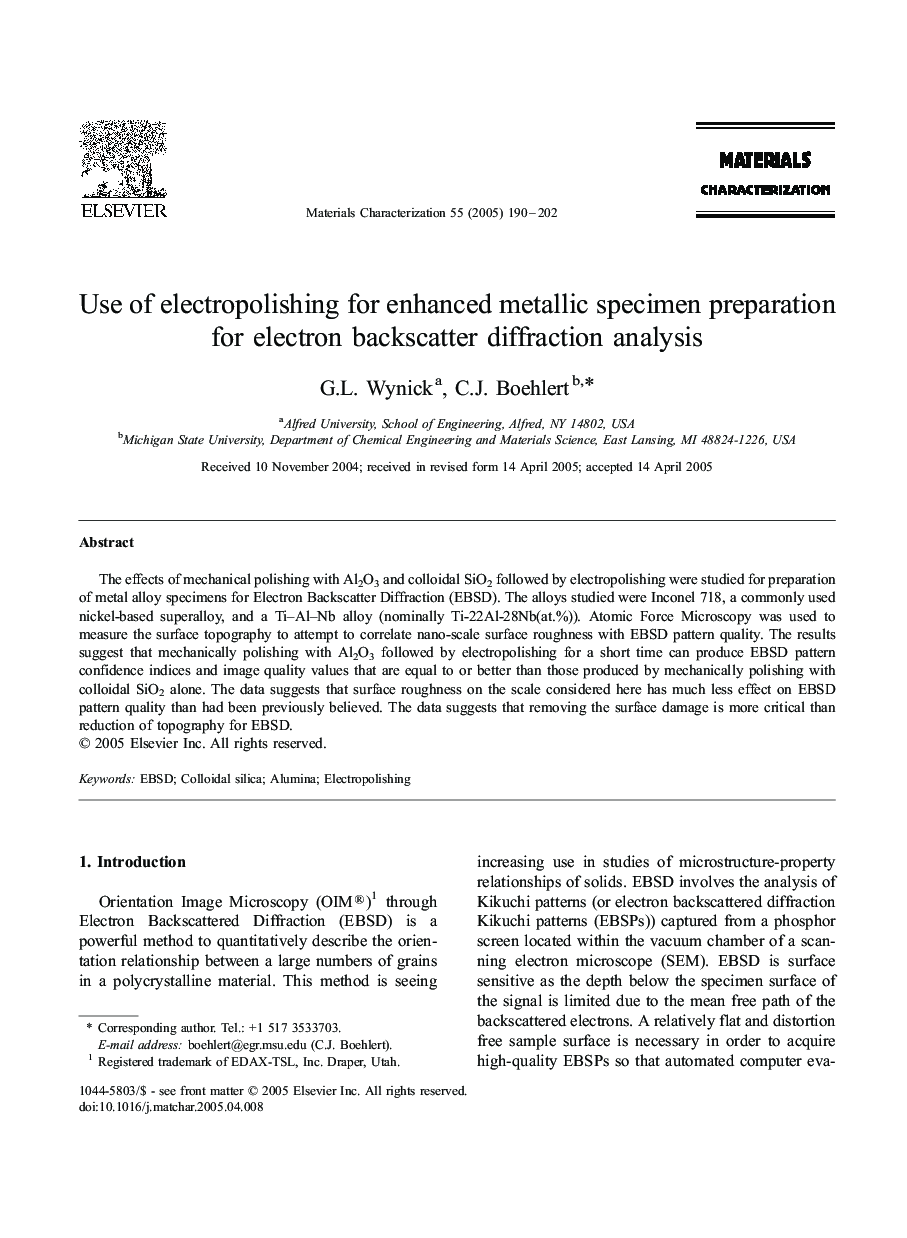| Article ID | Journal | Published Year | Pages | File Type |
|---|---|---|---|---|
| 10645730 | Materials Characterization | 2005 | 13 Pages |
Abstract
The effects of mechanical polishing with Al2O3 and colloidal SiO2 followed by electropolishing were studied for preparation of metal alloy specimens for Electron Backscatter Diffraction (EBSD). The alloys studied were Inconel 718, a commonly used nickel-based superalloy, and a Ti-Al-Nb alloy (nominally Ti-22Al-28Nb(at.%)). Atomic Force Microscopy was used to measure the surface topography to attempt to correlate nano-scale surface roughness with EBSD pattern quality. The results suggest that mechanically polishing with Al2O3 followed by electropolishing for a short time can produce EBSD pattern confidence indices and image quality values that are equal to or better than those produced by mechanically polishing with colloidal SiO2 alone. The data suggests that surface roughness on the scale considered here has much less effect on EBSD pattern quality than had been previously believed. The data suggests that removing the surface damage is more critical than reduction of topography for EBSD.
Related Topics
Physical Sciences and Engineering
Materials Science
Materials Science (General)
Authors
G.L. Wynick, C.J. Boehlert,
